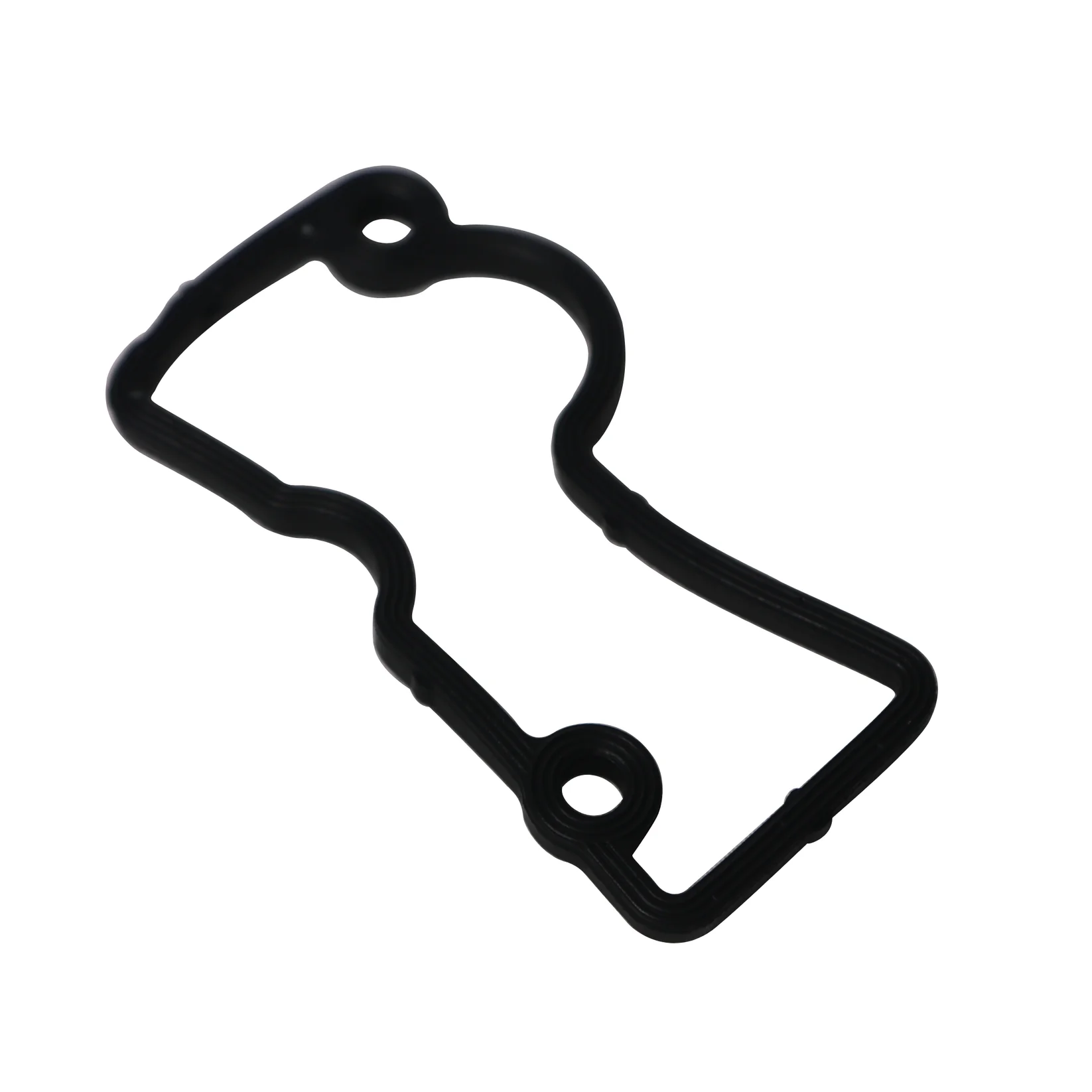Porsche Engine Valve Cover Gasket – Reinz 713340000 Porsche 911 993 1995-98
Engine Valve Cover Gasket Overview
The valve cover gasket forms a critical seal between the valve cover and the top of the engine’s cylinder head. Its primary function is to prevent engine oil and oil vapors from leaking at this junction. To do so effectively, the gasket must offer enough compressibility to accommodate minor surface imperfections and maintain a tight seal.
Modern valve cover gaskets are typically made from rubber or other elastomeric materials. Some are simple rubber gaskets, while others may include metal or composite reinforcements to provide added strength and durability.
In contrast, older European or classic vehicles may use cork or similar natural materials for the gasket. These materials are particularly sensitive to installation technique and torque specifications. Extra care must be taken during installation to avoid over-tightening and damaging the gasket, especially with cork, which can be easily crushed and rendered ineffective.
In stock
$6.99
In stock
Product Information
Quantity Required: 6 upper valve cover gaskets per engine
Engine Valve Cover Gasket Overview
The valve cover gasket forms a critical seal between the valve cover and the top of the engine’s cylinder head. Its primary function is to prevent engine oil and oil vapors from leaking at this junction. To do so effectively, the gasket must offer enough compressibility to accommodate minor surface imperfections and maintain a tight seal.
Modern valve cover gaskets are typically made from rubber or other elastomeric materials. Some are simple rubber gaskets, while others may include metal or composite reinforcements to provide added strength and durability.
In contrast, older European or classic vehicles may use cork or similar natural materials for the gasket. These materials are particularly sensitive to installation technique and torque specifications. Extra care must be taken during installation to avoid over-tightening and damaging the gasket, especially with cork, which can be easily crushed and rendered ineffective.
Common Symptoms of Valve Cover Gasket Failure
-
Aging and Deterioration:
Over time, rubber gaskets harden and become brittle, eventually leading to oil leaks at the seal. Cork and other natural materials may degrade, allowing oil to seep through. -
Physical Damage:
Incorrect installation—particularly excessive torque—can compress or crush the gasket beyond its designed limits, preventing it from sealing properly. -
Chemical Damage:
Using the wrong type of gasket sealant or chemical agents can compromise the gasket material, either through direct chemical interaction or by interfering with the gasket’s intended sealing method. -
Visible Oil Leaks:
One of the most obvious signs of a failing valve cover gasket is oil leaking down the cylinder head from the valve cover area. -
Unusual or “Mystery” Oil Leaks:
Oil can sometimes appear in unexpected areas due to airflow within the engine bay. If no other clear source of a leak is visible, a thorough cleaning and inspection may reveal a faulty valve cover gasket as the cause. -
Air Intake Leaks / Engine Performance Issues:
A severely failed gasket may allow air to enter or escape from the engine, potentially triggering a check engine light or causing rough idling due to unmetered airflow. -
Burning Oil Smell:
Oil leaking onto the exhaust manifold from a compromised valve cover gasket can burn off when the engine is running, producing a distinct burning oil odor, especially noticeable while driving.
| Weight | .05 lbs |
|---|---|
| Dimensions | 4 × 4 × .10 in |







